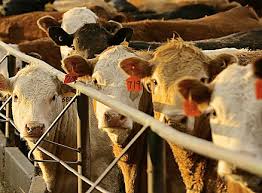Derrell S. Peel, Oklahoma State University
The latest USDA Cattle on Feed report shows that the September 1 feedlot inventory was 11.279 million head, 100.4 percent of last year. Feedlot inventories typically reach a seasonal low in August or September with the low occurring in August in four of the last ten years and six times in September. The September 2022 inventory was up 0.5 percent from August, indicating that August was the low this year. The August low was 975,000 head lower, down 8.0 percent, than the record on-feed inventory in February 2022.
Feedlot inventories grow seasonally in the fall but the increase this year is expected to be less than the record levels last year. August placements in the cattle on feed report continued the trend of recent months of large placements of lightweight cattle with fewer heavy placements. August placements were 100.4 percent of last year. In the past four months, from May – August, total placements were down 0.6 percent year over year with placements under 700 pounds up 5.3 percent and placements over 700 pounds down 3.7 percent compared to last year. Past placements of lightweight cattle suggest fewer cattle available for placement going forward.
The feedlot placement patterns this year are consistent with feeder cattle marketing data. In Oklahoma, since July 1, the combined auction volume of feeder cattle has been 17.5 percent above last year but the percentage of those cattle that were over 600 pounds has been much less than normal. There are certainly indications that more feeder cattle have been marketed earlier and lighter weight than usual. The fall run of calves in October and November should be noticeably reduced this year.
Marketings from feedlots in August were 106.4 percent of last year. There was one more business day in August compared to one year ago which accounts for part of the increase but daily average marketings were higher by 1.7 percent year over year. In the last four months, total marketings have been up by 1.7 percent over the same period last year.
Both feedlot inventories and cattle slaughter have remained stubbornly high this year due to drought forced movement of cattle out of the country. Total fed cattle slaughter thus far in 2022 is up 0.8 percent as the 1.7 percent decrease in steer slaughter for the year to date is offset by a 4.9 percent increase in heifer slaughter. Total cow slaughter is up 5.6 percent so far this year, driven by a 13.4 percent increase year over year in beef cow slaughter. Total cattle slaughter is up 1.8 percent year over year thus far in 2022, with female (cow plus heifer slaughter) accounting for 50.9 percent of total cattle this year. Cattle slaughter and beef production are projected to decrease year over year in the fourth quarter but higher than expected beef production in the first three quarters of the year likely mean that annual totals for beef production will be steady or fractionally higher year over year. Feedlot production, cattle slaughter and beef production are all expected to decrease sharply in 2023.














